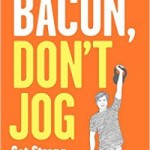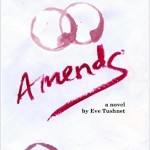The remarkable film Of Gods and Men is out on Netflix, and if you haven’t seen it yet, I urge you to put it on your queue and move it to the top. It is one of the best films I seen in years — gripping, moving, enlightening and insightful. I can’t think of a film in recent memory that so truly and respectfully portrays the life of faith, the religious life, and most especially the value, use and meaning of liturgical prayer and the sacramental, Holy Mass — how these enhance the life of faith, deepens its roots so that it may withstand the storms that come.
If it begins a little slow for some, especially in our age of shoot-em-ups, stick with it. This is lovely, simple, lyrical and true:
First of all, it is a realistic portrayal of the life of faith. The monks are not perfect; no saint, or martyr, is. Holiness always makes its home in humanity. Occasionally the monks are impatient, tetchy, or short with one another. (“He’s tired,” says an older monk after a younger one has spoken to him sharply while cleaning up after a meal.) One of them thinks wistfully of the life that he might have had “on the outside.” Moreover, the group struggles mightily with the idea that they might be “called” to be martyrs, indeed resisting it until almost the last minute. As anyone would. The life of the believer often involves uncertainty, doubt, and confusion. Two of them are seen, quite distinctly, as “avoiding” their fate. But all try to grapple with what God seems to be asking of them, strange and frightening as it may seem to them.
Second, the movie does not stint—at all—on the religious underpinnings of their actions and choices. Too often in contemporary cinema, producers or directors indicate by their own choices that audiences will not understand people who talk about God in a serious way. And so we see (and hear) the monks chanting their prayers, celebrating Mass, preparing for Christmas. In this way the movie was reminiscent of another recent film on the monastic life, the documentary Into Great Silence. We hear the words of their prayers, too; and we are privy to their conversations with one another about God, and often with God. God is real to them; and God’s effect on their lives is made real to the viewer.
You’ll want to read that whole review, and I agree that the “last supper” scene was spine-tingling and moving in a remarkable way, but the whole film is full of moments of almost sublime sweetness intermingled with moments of terror, hopelessness, fear, doubt, and pleading prayer – “help me, help me, oh, help me.” 
The director makes his points without hammering us over the head — when the Abbot, Brother Christian, is simply walking through the fields, along with sheep, you understand what he is thinking, and why he cannot leave to save himself. When he is marveling at the circumference of a tree that must be thousands of years old, you understand that he is thinking that it has been there long before he existed, will be there long after he has died. Its roots are deep. And Jesus hung upon such wood.

A scene I found almost unspeakably beautiful involved Vespers. Knowing that at any moment their humble monastery may be invaded by murderous extremists, the brothers hear a chopper come near. Perhaps this is the moment of their martyrdom, and while they by no means seek death, they cannot be anything but who and what they are: monks. As per the Rule of St. Benedict (which Trappists follow) “nothing is to be preferred to the Divine Office,” and so they draw together in their very humble choir, facing the stained glass window outside of which the menacing chopper hovers, and they put their arms about each other’s shoulders — true brothers — and sing all the louder, in beautiful harmony, in defiance, and in joy.
The “last supper” scene truly is astonishing. A confrontation with mystery. Understanding that this may be their last meal together — that they have made an irrevocable decision that will likely mean their deaths — they fill their glasses with the best wine, and instead of a reading, they listen to Tchaikovsky’s Swan Lake. As the music plays, they share a wordless conversation about love. Here is Love; they are confronting its depths and it sacrifice, it’s ache and confusion and its powerful relation to Truth. The Gospel notes are there: that they have saved the best wine for last speaks to the beginning of Christ’s ministry, and Mary’s words, “do whatever he tells you,” a scene which launched the world’s exposure to Jesus of Nazareth and speaks to the truth that to know him and follow him involves continual rediscoveries that hone new depths. We see that all of their pursuit of Christ has brought them to this self-knowing surrender to Providence. Watching this scene, the beginning of Psalm 133 came to me:
How good and how pleasant it is,
when brothers live in unity!
It is like precious oil upon the head
running down upon the beard,
Christ is all over this moment. Later, when the monks are taken prisoner, and the oldest has managed to evade capture, his silent grief at not being with his brothers, not surrendering that final bit of himself, is so sad and affecting, and yet ultimately this film is about freedom and victory.
The monks, living and dying in Christ, were true victors. I love the conversation between Brother Christian and Brother Luc, where they discuss their decisions to remain at the monastery: “to leave is to die,” Luc had said earlier. Now he ponders all he has seen in his life, including Nazi’s, and acknolwedges that he is not afraid of death — that his freedom has always been Christ-centered. As the bell rings, calling them to prayer, they prepare to exit the small office, and Luc jokes to Christian, “let the free man go through.”
It is a lovely moment, and when I watched it I could not help but think of the video I had watched a few hours previous, and which I found alternately ridiculous and profoundly sad.
“Let the free man go through,” said the martyred monk, Brother Luc. When he said it, with a wry grin, he seemed to me to be much more free than John Corapi, and when I said my prayers before sleep, I thanked God for his martyrs, but the bulk of my prayers were for Corapi, who seems to be in terrible trouble. As I texted to my Li’l Bro Thom, “He never looks directly at the camera, and when he looked away at the video’s end, all I saw was self loathing and imprisonment. I am watching Of God’s and Men right now, and those trapped martyrs were more free than that poor soul. It’s too sad.”
Thom’s response touched on what he understands of addictive personalities and compulsive disorders — all of it very enlightening, of course, but my head was swimming with images from the film and I couldn’t help thinking that Corapi’s desire to live a life without confreres, without accountability, without hearing, “no” once in a while or having to confer with a community rather than calling all of his own shots — and with the sacramental life of his priesthood taking a backseat to the preaching — I don’t think it served him well. I don’t think he was ever as free as these stable, committed monks, and frankly, I felt heartbroken for him.
Let us give thanks to God for the witness of his martyrs, who demonstrate to us so clearly that a life of simplicity, stability, prayer and togetherness — all rooted in the love of Jesus Christ, who is the All-in-All — brings forth the depth of reality that is within the mystery, and reveals God to us in myriad ways as we learn what it is to be free.
And let us sincerely pray for John Corapi, who truly seems imprisoned by that rather creepy-eyed creature at the base of his video, and who needs to find that freedom.
More on Of Gods and Men, and Stablity at Sister Laurel’s page
Also, I think I now must get to know these monks better, through this book
UPDATED:
In his homily for this week, Deacon Greg finds stability in the seed-sowing parable
It happens again and again in our history – from St. Paul to St. Augustine to St. Ignatius to Dorothy Day and beyond. The soil they sprang from wasn’t always ideal. We are a church of rocks, and thorns, besieged by birds – and yet, amid this vast and surprising garden, God’s smallest seeds find fertile ground. His Word takes root.
Which brings me to one other significant point in this parable. It bears remembering.
In this story, the sower doesn’t change. The seed doesn’t change.
What changes is the soil.
What changes are the conditions that allow the seed to be planted.
What changes is the environment that lets the seed bear fruit.
What changes, in fact…is us.And we may never know where, or how, it will happen.
Christ does not change, but we do. God is not finished with any of us, yet.













